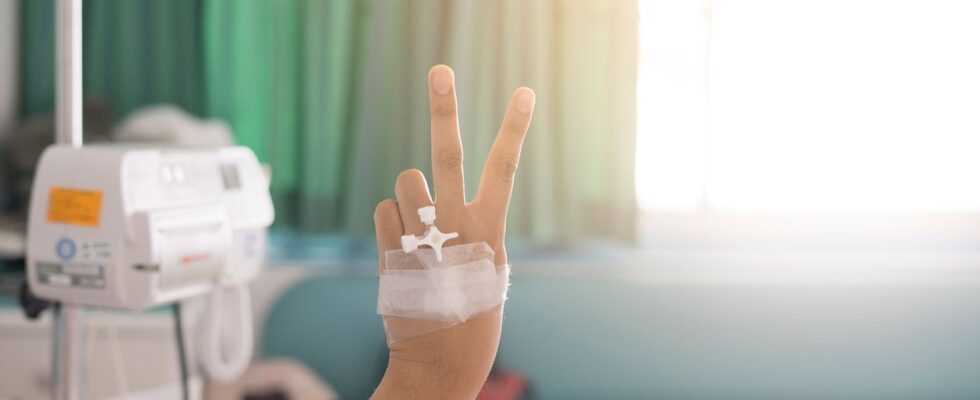16-year-old Anaïs tells us about her leukemia, and how she experienced it. Life in the hospital, the vision of education, the kindness of the nurses… She tells us everything with incredible optimism.
Leukemia is a form of blood cancer, very common in France. In fact, it affects around 9,000 people in France each year, and represents 1% of all cancers. As the disease can never be better explained than by those who are victims of it, Anaïs, 16, tells us about her leukemia.
This brave young girl was treated for type B leukemia with the Philadelphia gene, a very aggressive form of the disease. She tells her story, how she felt about education, how she lived in the hospital, her remission.
Life in the hospital
Anaïs was quickly diagnosed. While she had symptoms similar to the flu or stomach upset, blood tests revealed leukemia. “I stayed for a month and a half the first time, when we arrived at Robert Debré. After that, we went out about every other day, if I remember correctly. We came to do care and everything for a year. We have a protocol, so we are told: “Such day you come, the next day you do not come”. Next to it we have the nurses too. Our life is mostly the hospital for a while”, Says the young girl.
With great gentleness, Anaïs remembers the courage of the nurses. “We don't want to see anyone, we're angry for being here. So we don't talk, we don't smile, generally, because we are not happy to be there. They go through things … Well, it must be hard to deal with our illnesses at the same time as we do … It's their job, but it must be hard. You have to have a strong morale ”. It is true that we tend to underestimate the strength and involvement of nurses.
Even though being hospitalized is terribly painful and terrifying, the young girl explains that children are not left behind. We offer them workshops, something to keep them busy. There are volunteers who come to distract them. Anaïs remembers a visual art teacher who offered to draw or do manual work. We also organize outings for them such as going to the theater, ping-pong …
His feelings about education
Anaïs shares her feelings about school, and how illnesses are approached there. “With regard to education, something is missing. When we can go to school with illnesses like we have, for them, that's it: we came back, everything is fine, but not at all. We still have treatments behind, generally, when we can go back to school, we still have treatments behind. They say you think it's when you have chemo that you're all woozy. That's all they say in the movies. This is what we are shown. But not at all. It is especially after the chemo that we are sometimes nauseous, sometimes it hurts somewhere … ".
In school, students and teachers don't necessarily know this stuff. If everyone thinks that in fact a patient is okay because they are there, that obviously can make them uncomfortable and not help at all. That’s why it’s important to talk, explain and listen.
Coping with illness
Anaïs says that during her treatment and while in hospital, she cut herself off from her college friends, and from her childhood friends. She even explains that the patients do not talk to each other. “It's weird to say, but we don't want to talk to each other. Well, there may be some talking to each other, but it's too complicated, I think ”.
She also shares how much support her dog has been for her. The young girl was even allowed to bring her boxers back to the hospital. He was watching over her a little. The latter explains that before she was diagnosed with leukemia, her dog was quite aggressive with her, as if he sensed something was wrong. “It's weird to say, but, it's like a big drug. "
The young teenager explains that there are two or three things to improve in the bedrooms, so that the children feel a little more in their room, precisely. We all know how neither warm nor comforting hospitals are. But, she is delighted to see that they have redone the halls of the hospital where she was treated. They painted little flamingos on the walls.
A ordeal now behind her
“So for me it's over, it's my past. There I am in second in a general high school”, Explains Anaïs. As soon as she was allowed to, she returned to dancing and horse riding. Now she is out of treatment, nothing at all, she is being monitored to make sure everything is okay. “You shouldn't be afraid in fact. You have to tell yourself that it will pass anyway and that you have to keep smiling. We must already think that we are there, that we can be saved, healed, that we are lucky. For me, you have to keep smiling”.
Thank you to Anaïs for her testimony, for her courage and her gentleness. We wish him to continue to do well, and to always keep his positivity and his optimism!
